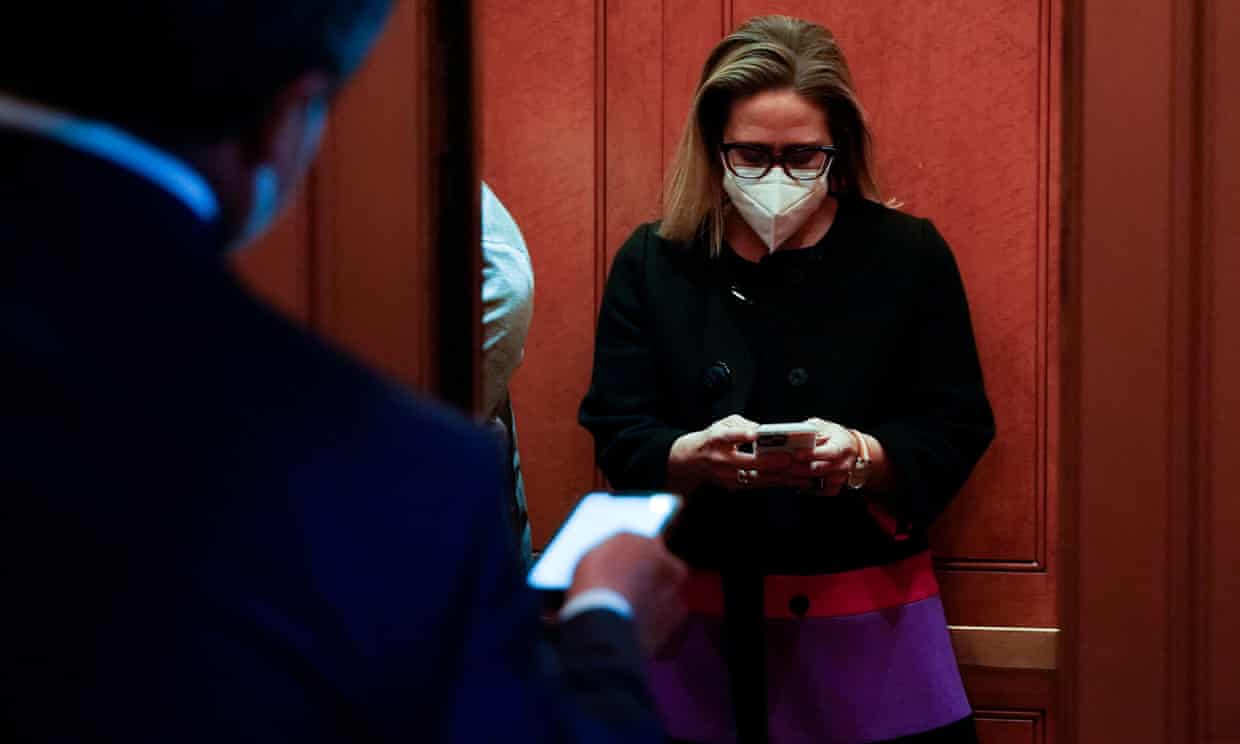Corporate sedition is more damaging to America than the Capitol attack
"Kyrsten Sinema receives millions from business and opposes progressive priorities. Republicans who voted to overturn an election still bag big bucks. Whose side are CEOs on?
Capitalism and democracy are compatible only if democracy is in the driver’s seat.
That’s why I took some comfort just after the attack on the Capitol when many big corporations solemnly pledged they’d no longer finance the campaigns of the 147 lawmakers who voted to overturn election results.
Well, those days are over. Turns out they were over the moment the public stopped paying attention.
A report published last week by Citizens for Responsibility and Ethics in Washington shows that over the past year, 717 companies and industry groups have donated more than $18m to 143 of those seditious lawmakers. Businesses that pledged to stop or pause their donations have given nearly $2.4m directly to their campaigns or political action committees (Pacs).
But there’s a deeper issue here. The whole question of whether corporations do or don’t bankroll the seditionist caucus is a distraction from a much larger problem.
The tsunami of money now flowing from corporations into the swamp of American politics is larger than ever. And this money – bankrolling almost all politicians and financing attacks on their opponents – is undermining American democracy as much as did the 147 seditionist members of Congress. Maybe more.
The Democratic senator Kyrsten Sinema – whose vocal opposition to any change in the filibuster is on the verge of dooming voting rights – received almost $2m in campaign donations in 2021 even though she is not up for re-election until 2024. Most of it came from corporate donors outside Arizona, some of which have a history of donating largely to Republicans.
Has the money influenced Sinema? You decide. Besides sandbagging voting rights, she voted down the $15 minimum wage increase, opposed tax increases on corporations and the wealthy and stalled on drug price reform – policies supported by a majority of Democratic senators as well as a majority of Arizonans. . .
[...]
The profits of big corporations just reached a 70-year high, even during a pandemic. The ratio of CEO pay in large companies to average workers has ballooned from 20-to-1 in the 1960s, to 320-to-1 now.
Meanwhile, most Americans are going nowhere. The typical worker’s wage is only a bit higher today than it was 40 years ago, when adjusted for inflation.
But the biggest casualty is public trust in democracy.
In 1964, just 29% of voters believed government was “run by a few big interests looking out for themselves”. By 2013, 79% of Americans believed it.
Corporate donations to seditious lawmakers are nothing compared with this 40-year record of corporate sedition.




No comments:
Post a Comment